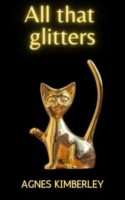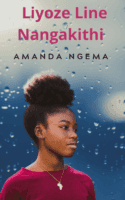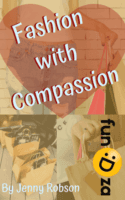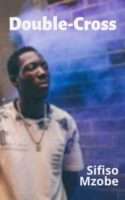I thought back to the conversation I had had with Liesl after I found out about my mother. She was adopted too, but she had always known and so she was comfortable with it. I thought talking to her would help. It did, until I told her something important about my mother.
“She was a freedom fighter.”
“What! My father says they were terrorists. Do you know how many people they killed?”
“My mother was not a terrorist!”
As I said the words I felt rage flare inside me – and things went pretty much downhill after that. Could we be friends, with such a different views of our past?
When we met now, we chose our words carefully, careful not to offend each other. But we skirted round each other, like wary cats.
* * * * *
We were walking carefully, taking care not to disturb the bodies that lay there, under the mounds of soil and concrete and stone on this dusty hot afternoon in Botswana. We had come to look for what remained of my mother and father.
“There it is. This is where your mother’s bones lie.” The man who was walking in front of us pointed to the corner of the graveyard. “It’s the one in the corner there. And your father – over there.”
I was not sure what I was supposed to do. My mother whispered in my ear: “Go and talk to her, Mpho. She can hear you.”
I stood there, feeling hesitant. Then I thought maybe kneeling would be better, so I knelt down amongst the graves and started to speak to my mother. “I wonder if you would be proud of me if you came back? Would you be proud of the young woman who I have become?” I whispered.
I wondered, and was not convinced she would be happy with me. Certainly not with who I was a month ago.
Everything seems different now. It’s been only a month since I stepped into my dress and twirled and smiled in front of the mirror. It is a month since a stranger came to our house and left a letter that turned my home upside-down. But as the days pass my world is settling again. It is different but life makes better sense, I think. I feel more purposeful.
I ask myself if my mother’s killer is alive. I wonder if he or she wakes up every day, happy. If there is laughter and sadness in his life. Does he have children? I know that I look at South Africa differently now.
It is still too early and too raw for me to talk about forgiveness. Maybe one day I will forgive and forget. When I read about a killer going free, it stirs up sadness in me and all over again I start to mourn the loss of a mother and father who were stolen from me by Apartheid. When I hear people saying we should ‘move on’, and I see a movie that talks about the Holocaust and how it will not be allowed to die, I look at the person and want to slap their face and the anger that I carry begins to simmer again.
* * * * *
It is the morning of the unveiling of my mother’s tombstone and as we gather round the grave I look up and I am surprised to see Liesl and her family getting out of their car. I feel something shift inside me. It is not that I am no longer angry but it – anger – has been eating away at me. The anger must lift or it will keep me down forever.
Liesl and her parents hug each one of us. Liesl says, her voice wavering with emotion, “We have learned through your experience … of finding out who your mother and father really were … what they did … why they did it. How they died.”
Voting wasn’t something I had ever thought of doing, but now I am noticing and reading and listening and learning. I was going to leave it to my mother and father but now all that has changed. All around us I look at the colours of the flags that have popped up on the houses down the road from us. Some are green and yellow and some are red flags, and some blue ones have appeared.
This morning as I looked out I heard singing and a chorus as the streets fill with young people and there was cheering and shouting. It was the youth wing of a political party, marching, asking for support.
Drifting along thoughtlessly without direction is not for me anymore. I must make my voice heard. They call us young people ‘Born Frees’. Some say we have everything going for us and that we need to forget about the past and get on with life. But I am still struggling to come to terms with the discoveries I have made. Maybe my heart is not big enough to forgive – not quite yet, anyway. And I know I will never forget.
* * *
Tell us what you think: The Truth and Reconciliation Commission set up in 1995 aimed to help people find out the truth and find closure over politically-motivated deaths during Apartheid. Does knowing the truth help one forgive and come to terms with death of loved ones?







